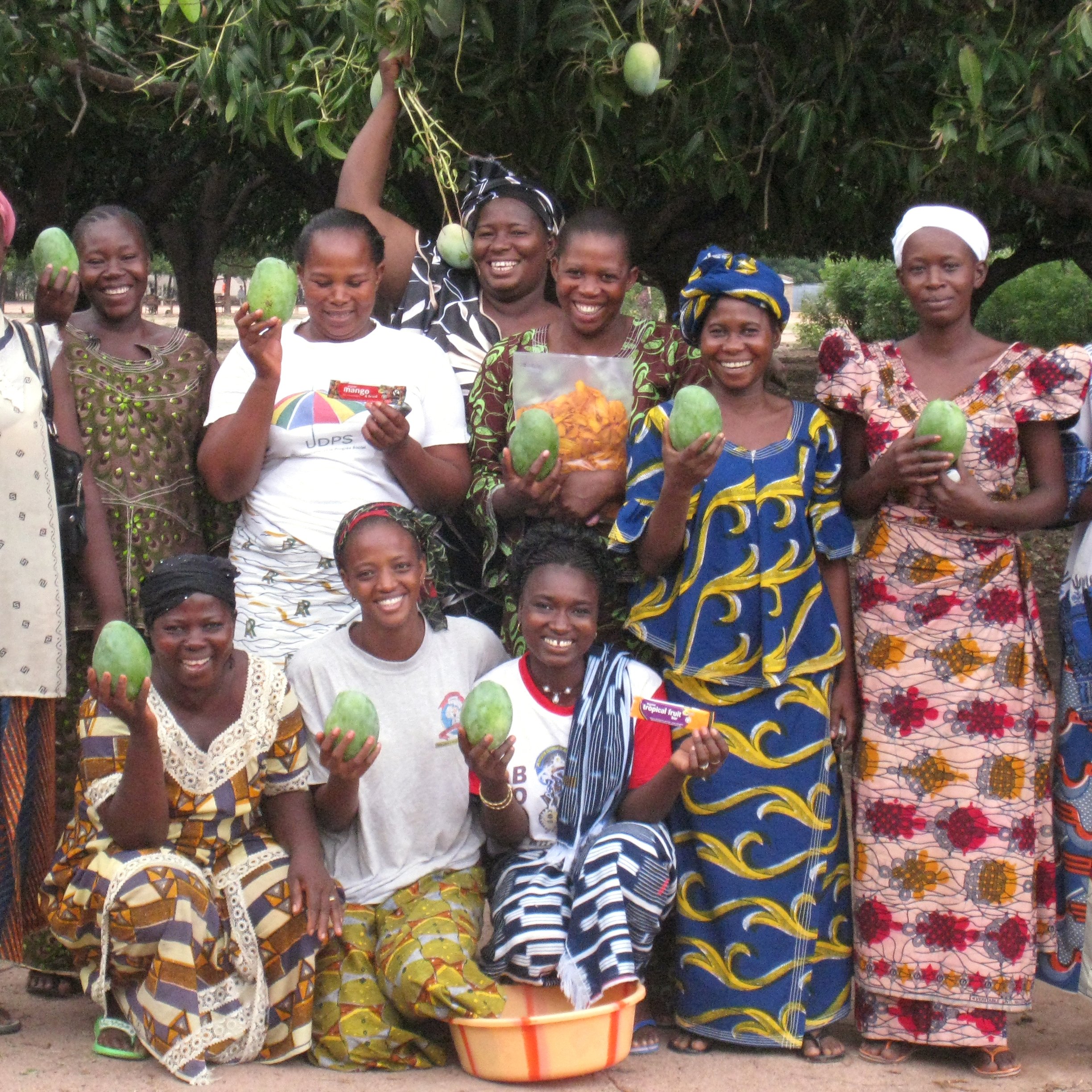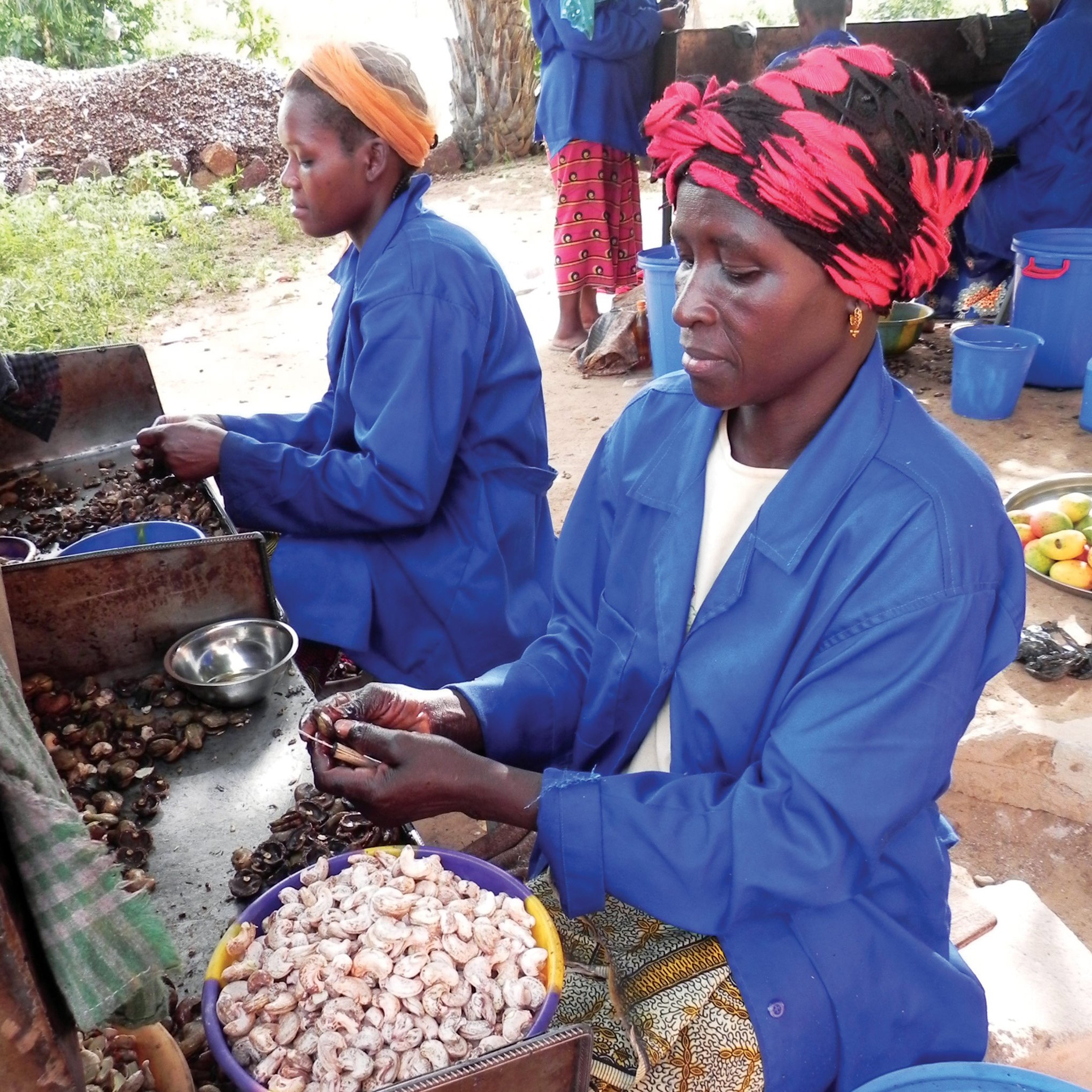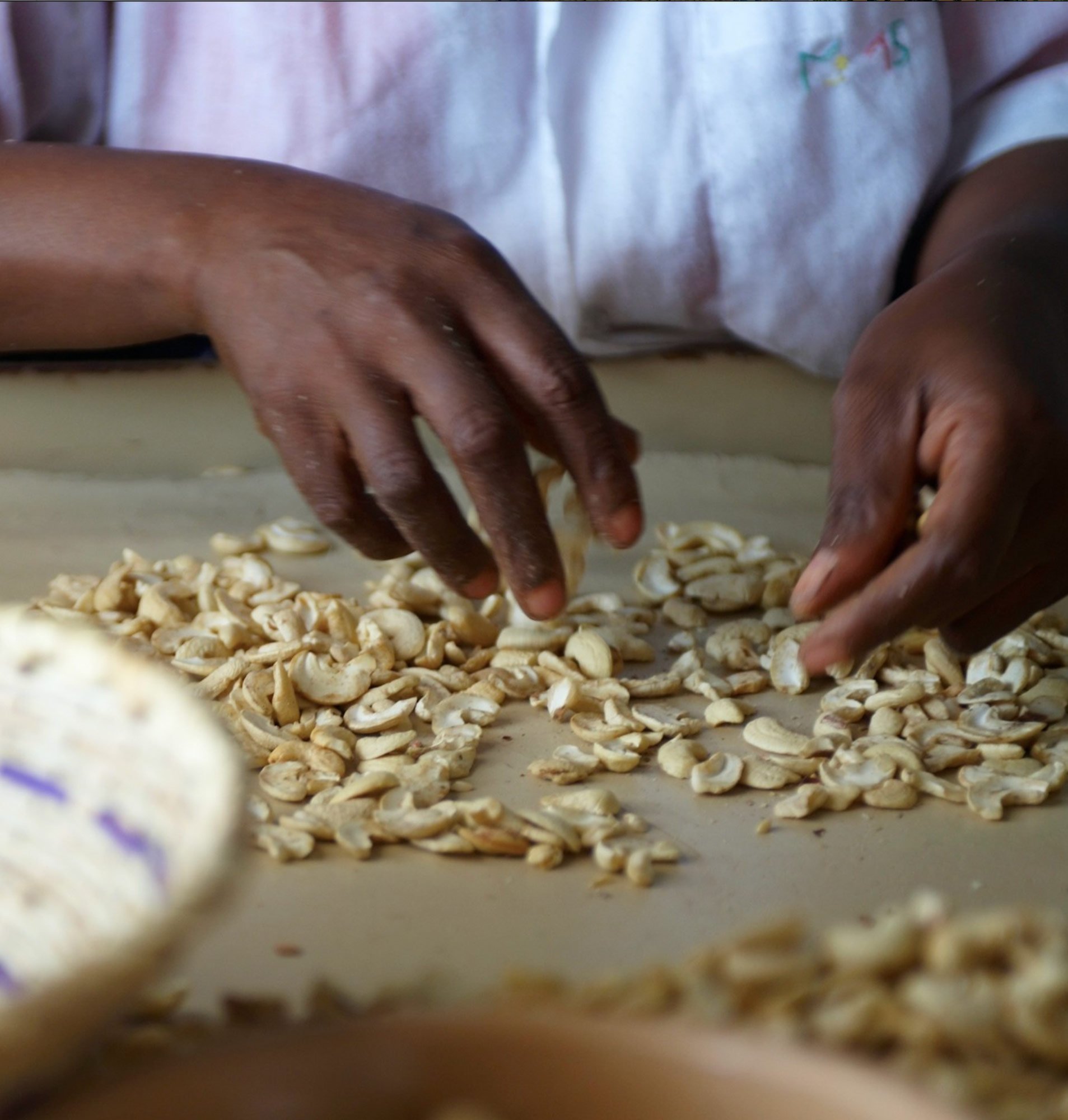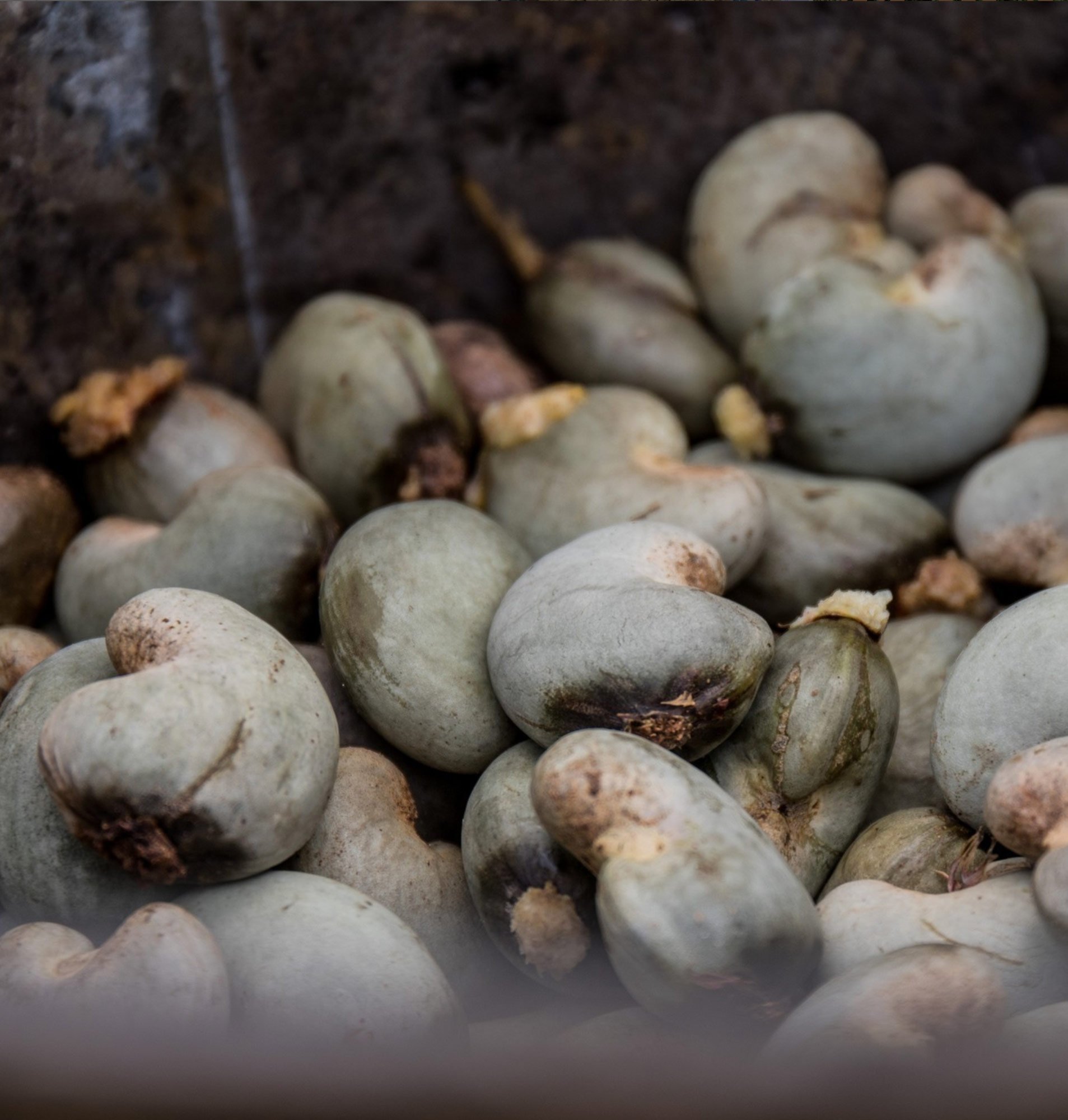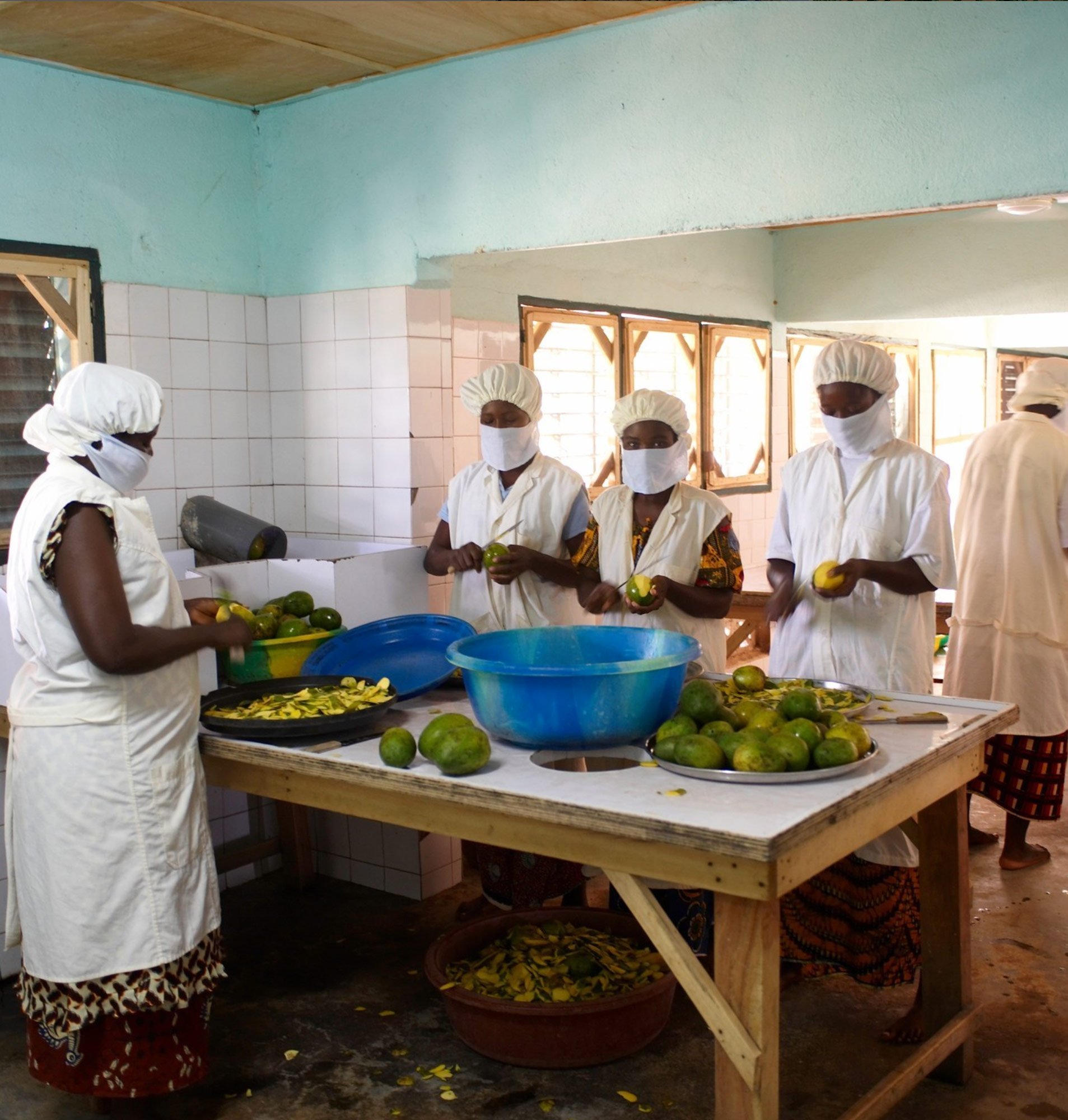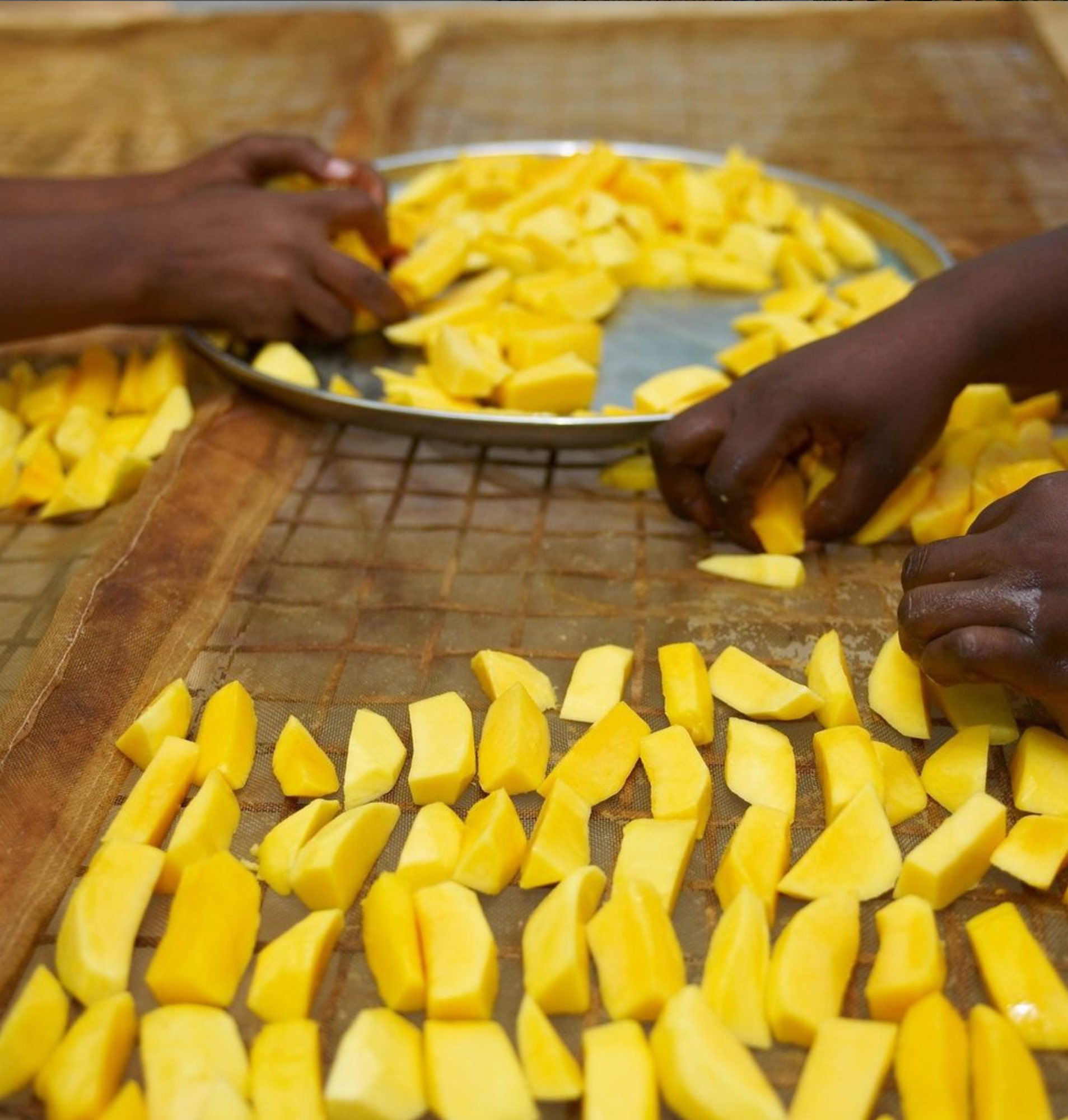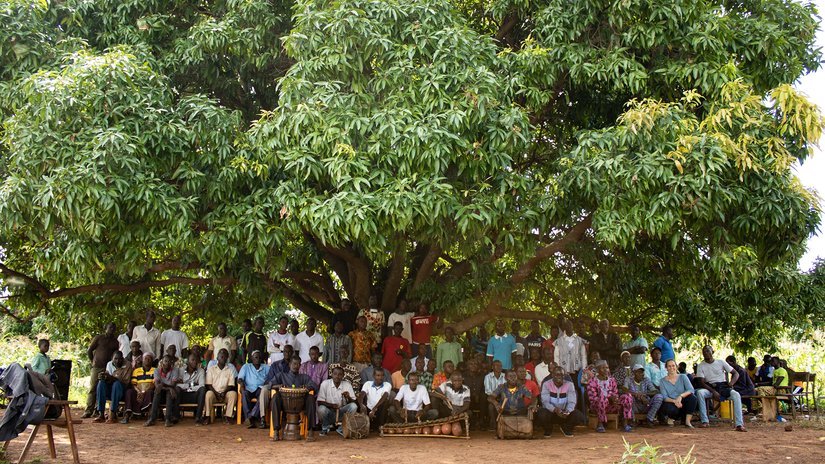The Story Behind Our Alternative Trade Partnership with Gebana Burkina Faso
“Companies that only share their profits with investors, rather than critically examining their entire supply chain, are companies that promote inequality.”
By Phyllis Robinson, Citizen-Consumer Member and former Equal Exchange Education and Campaigns Coordinator
Last month, a good friend of mine and her 28-year-old daughter, Celia, came to visit for the weekend. Celia spent an afternoon with her friends, and upon returning, she shared with us that when she told her friends where I worked, they had responded “Oh, Equal Exchange! We love them. They’re so old-school.” My friend and I had to laugh.
We wondered what Celia’s friends meant by “old-school.” Were they referring to our mission of prioritizing people before profits, caring about farmers and their communities, and protecting the planet? Giving workers ownership, a voice, and a vote in the company, rather than just prioritizing investors?
Equal Exchange was founded in 1986 during the Central America solidarity movement. Times were different back then. The founding members of Equal Exchange brought our first bags of Nicaraguan coffee into the US with the help of an Alternative Trade Organization in Holland, who roasted and packed the coffee, allowing us to get around the Reagan embargo. We organized demonstrations in front of supermarkets, urging that they carry fair trade coffee. We brought people to Central America to meet our cooperative producer partners, where we picked coffee alongside the farmers and stayed in their homes.
Back in the day, we were part of a larger movement of Alternative Trade Organizations (ATOs), sprinkled across the globe. Our shared vision was to transform global trade into a force that could uplift small farmers, support democratically organized cooperatives, educate consumers, and provide sustainable, healthy, delicious food to consumers. While our work was outside the mainstream, we took comfort in knowing that there were other organizations out there, also putting their solidarity values into practice.
Flash forward 35 years. The world today certainly is a very different place.
Fighting against corporate consolidation
According to the correspondent Kate Taylor in a 2017 Business Insider article, These 10 Companies Control Everything You Buy, only 10 companies control almost every large food and beverage brand in the world. “These companies—Nestlé, PepsiCo, Coca-Cola, Unilever, Danone, General Mills, Kellogg's, Mars, Associated British Foods, and Mondelez—each employ thousands and make billions of dollars in revenue every year.” In 2016, the collective revenues of these ten companies totaled $374.2 billion.
The consolidation of the food system by corporations continues to go unchecked, leading to near-total control by these large conglomerates in today’s market. This makes it increasingly difficult for independent, mission-driven food companies to maintain ground in the market. Many have been forced to close their doors or have been bought out by these larger brands.
We have watched far too many of our fellow ATOs struggle to survive. When they fail, all the hard work that went into building alternative, democratic, small farmer supply chains gets lost as well. Hundreds of small farmer producer groups and thousands of family farmers are left without a market for their products.
Even during the best of times, the work of ATOs, like Equal Exchange, has always been difficult. A business model based on transparency, long-term relationships with small-scale farmers, pre-harvest financing for risky agricultural crops, and above-market prices paid to farmers, is not a formula one generally sees being taught in business schools. To succeed, we’ve always had to be entrepreneurial, creative, and willing to take considerable risks.
Now, our very survival necessitates being ever more nimble and innovative.
Finding parallels and forming alliances
Since our founding, we have sought to partner with visionary, democratic, and sustainably-minded producer groups, distributors, food cooperatives, and natural grocery stores. This approach is no longer enough. We now have to respond to this growing corporate threat by taking our model one step further: partnering with other ATOs and building bridges amongst ourselves, as if we were islands floating in a large ocean that is today’s food system. We believe this is the only way to survive, continue to thrive, and achieve our mutual goal of a food system that works for everyone, not just the corporations.
As we put this strategy into action, it’s exciting to observe how our networks are increasingly becoming not just north-south, but east-west as well. Gebana, an innovative Swiss-based ATO, shares many similarities with Equal Exchange, according to Rink Dickinson, Co-founder and President of Equal Exchange:
“Like Equal Exchange, Gebana is a creative, entrepreneurial ATO who is innovative and independent in its thinking. We have this work to do; how can we do it in the most effective way possible?
We both have a deep commitment to small-scale farmers, cooperatives, democracy and to building effective organizational models that redistribute wealth and power on a global level.
As for scale, we are both under $100 million in sales. You could say we’re tiny, small, or medium-sized. Depending on the context, we could be considered a minor or a major player, but one thing is certain: both of us are definitely a player.
We both have citizen-consumers as part of our actual model. From the beginning, Equal Exchange had a deep connection to Central America organizing and in the last eight years, we have been including citizen-consumers into our model to enable us to be more effective in making change. Gebana began as an activist movement originally around bananas, then began reaching out directly to small farmers and became an ATO, which led to innovation in their organizational structures and how they get things done.
Each of us works with many different organizations in different countries, building our respective networks to best carry out our mission. That’s not an accident.
Very few ATOs run factories that produce things. In our case, it’s roasting coffee. For Gebana Burkina Faso, it’s processing cashews and mangoes.”
Image adapted from gebana.com
Gebana’s rich history in social justice activism
The historical roots of Gebana began in 1973 when a woman named Ursula Brunner got inspired after watching ‘Bananera Libertad’, a documentary focusing on the plight of Latin American banana workers. The film prompted her to ask questions about the banana trade. Why were the farmers paid so little and working under such horrendous conditions? How could it be that the price of a banana, imported from Latin America and sold in Swiss supermarkets, could end up costing so much less than a locally-grown apple? What is the ethical nature of a relationship between farmers in the global South and the northern consumers who purchase their bananas?
Ursula brought a group of women together to help bring attention to this issue by organizing a series of creative guerrilla marketing street actions. According to a 2019 Shared Interest blog post, “It is reported that after just two days, this group of seven women distributed 600 kilos of bananas and collected 1,500 signatures in a petition to achieve a better price for banana farmers.” Their efforts were repeated by women throughout the country.
By the 1980s, the women began actively participating in the banana trade, starting the Working Group for a Fair Banana Trade (in German, “Arbeitsgemeinschaft GErechter BANAnenhandel” or “GEBANA” for short). In 1986, they organized a massive campaign to benefit Nicaraguan banana producers, which resulted in the sale of 40 tonnes of bananas. As part of the campaign, the women demanded that a 15% premium be sent back to the banana farmers. These premiums enabled the communities to purchase an ambulance, build a nursery, and upgrade sanitation facilities, altogether benefitting 4,000 workers and their families.
Eventually, their campaigning for fair working conditions and fair prices for banana workers grew into a Swiss-wide movement for conscious consumption and fairer trade. By the 1990s, fair trade had become institutionalized in Switzerland and supermarkets were selling the first bananas with a fair trade label. In 1998, Gebana converted from an association to a legally incorporated trading company, Gebana AG, becoming Switzerland’s first fair trade organization. The founding “Banana Women,” as they are called, are still regarded as the pioneers of fair trade in Switzerland and their ideas remain an important foundation of Gebana's work to this day.
Above photos courtesy of Gebana
Gebana’s mission, model, and organizational structure
Soon after its founding in 1998, Gebana began to invest in local processing facilities and to establish direct contact with farming families in the Global South, working closely with local partners to create sustainable value chains in Brazil, Burkina Faso, Tunisia, Togo, and Benin. They then went on to create a unique organizational structure, working with independent, but affiliated, organizations in these five countries. The company sells its partners’ products in bulk directly to consumers through its online shop, as well as to retailers in Europe, Asia, and the U.S. through a Dutch subsidiary. Today, Gebana buys directly from almost 12,000 farming families and employs 850 people worldwide, 96 percent of whom work in countries of the global South.
According to Michael Stamm, of Gebana AG, in a presentation given to Equal Exchange in January 2024, “In 1998, we became a for-profit organization, but not a conventional one; we have a huge social heart and desire for impact. Since then, we have been growing quietly, but significantly. Today, our turnover is about $80 million in sales. Our mission is: together, we want to change global trade in favor of family farmers, local communities and the environment. By together, we mean clients, customers, employees, investors, competitors, etc. We know that ‘alone, it is not possible.’ In order to change trade, we need to work together and we do this by investing in small farmers and their communities, creating employment, and developing projects to improve agriculture and trade logistics.”
In a September 2023 article, The Principle of Sharing, published in Food 4 Transformation, Carolin Schaar writes,
“Strengthening the economic power of countries with massive poverty, creating dignified working conditions and increasing women’s involvement in the economic system–these are all major objectives for Gebana. The company recognised early on that such changes could not be brought about through the price of agricultural goods alone. Based on a holistic approach, Gebana establishes independent businesses in countries of origin, creating value and employment locally, transferring know-how and paying taxes.”
“The company invests predominantly in West Africa, where other foreign investors are deterred by currency crises and military coups; for example, it is currently building a factory in Burkina Faso that will create 1000 new jobs in mango and cashew processing. The majority female workers will have access to modern infrastructure, a hospital ward and child care, and the switch to more technologically advanced procedures will boost skilled employment.”
On February 2, 2024, Gebana broke ground for the cashew and mango processing factory in a celebratory ceremony in Bobo Dioulassou, Burkina Faso. Photo courtesy of gebana.com
Gebana Burkina Faso was founded in 2009. Since then, the company has invested heavily, provided technical training and support, and is funding the construction of a processing facility that will be run by local workers. As such, they have had a major hand in transforming local agricultural production and have contributed to strengthening the network of small family farmers. In 2023, Gebana Burkina Faso produced 1050 tons of dried mango and 405 tons of cashew nuts, making the company a major player in the agricultural food industry in West Africa.
Again, according to Michael Stamm, Burkina Faso is a very difficult country in which to work and especially to invest. “Many companies are choosing to leave Burkina Faso, but Gebana plans to stay. By processing in-country, we are helping to develop local economies and create jobs. The money that gets generated through workers’ salaries creates further investment. The higher prices we pay for products, together with the premiums, further supports entire communities. The factory we are currently building will be the biggest capacity of any other processing factory in Burkina Faso. When completed, it will be an investment of over $12 million. All in all, we are projecting to create 1000 additional jobs, and to incorporate 4000 more organic family farmers into the network.”
A fair price is not enough, profits must also be shared
Although Gebana’s products are certified fair trade, the company recognized that labels and certifications are merely a starting point for those whose mission is focused on long-term, sustainable transformation. While the fair trade model requires that buyers pay farmers a premium on top of an above-market price for their products, Gebana’s model takes this practice one step further. They have created a “sharing model,” whereby a percentage of sales revenues and shares of company profits are distributed amongst all participants in the Gebana network.
Most companies, whether fair trade or conventional, set their sales prices well after they’ve set their margins and taken all other factors into account, thereby ensuring high profitability. Gebana has developed its own model, one that Schaar says, “...turns customary pricing calculations on their head: the company pays ten percent of the sales price achieved in its online shop to the farming families—on top of the raw materials price and any premiums. These payments are distributed among all the farming families that supply Gebana, including those that provide products for the bulk retail business.” In 2022, the company paid out a total of over $1,000,000 in revenue shares directly to farming families in the global South. Their vision is to at least double that amount over the coming years by integrating more farming families and by growing sales.
They have also created an annual profit-sharing program with all employees in the Gebana network, whether in Europe or the global South. This approach creates a closed circular trade system, where if the entire system performs well, profits are shared amongst all of Gebana’s staff, investors, and customers in its online shop.
The mango tree in Tapogodéni is the cultural center of the village. Photo courtesy of gebana.com
Our introduction to Gebana and the blossoming of our partnership
Equal Exchange first learned about Gebana in 2013, while visiting our small-farmer cashew cooperative partner, Fair Trade Alliance of Kerala (FTAK), in India. FTAK is a 4500-member association of farmers who are a model of sustainable, regenerative agricultural practices. Lush, verdant farms produce a diversity of crops for individual, local, national, and foreign consumption: tea, coffee, cashews, coconuts, and a variety of spices. We toured farms, met with the producers, learned how they grow and process the cashews, and how the organization has supported the development of their communities. In contrast, we also had the opportunity to learn first-hand about the extremely toxic, exploitative, and ecologically unsustainable conventional cashew industry that supplies 97% of cashews into the global market.
At the time, all of our cashews were sourced from FTAK and we were interested in meeting other exemplary small farmer cooperatives from whom we could begin a similar partnership. It was near impossible, they just didn’t exist at any scale. That was when we were told that there was an “interesting group out of Switzerland” that was trying to build capacity in West Africa where 50% of the world’s cashews are grown, but where insufficient resources and lack of investment had prevented the farmers from making any kind of livelihood from their work. This chronic “underdevelopment” also hindered them from creating sustainable, long-term trade partnerships.
Some years later, Rink Dickinson received a call from a representative from Gebana who had come to New York City for work. She too had heard about Equal Exchange and after reading an article that Rink had written about our mission, values, and model, reached out and asked for a meeting. By this time it seemed that Gebana Burkina Faso was well-established and had succeeded in working with a growing number of small farmer mango and cashew producer cooperatives. Rink and a colleague drove to New York to meet her and not long after, we began purchasing small quantities of their cashews and dried mangoes.
Today, we are thrilled to have succeeded in forming a strong partnership with such an impressive ATO. All of our Organic Dried Mangoes and much of our Organic Natural Cashews and Organic Roasted Salted Cashews are sourced from Gebana Burkina Faso. If you have tasted these products, their flavor and high quality speak for itself. Beyond the products, however, we are proud to work with an organization that so closely shares our values. Their impact on the farmers, workers, and local economy is well-recognized. It is rare and admirable that they are willing to work in countries where investment carries significant risk.
In a world, and a food system, currently dominated by corporate consolidation and profit-maximization, it’s refreshing to work with Gebana. You could say that pretty much everything about their model and practices, and our unique relationship with them, epitomizes the true definition of alternative trade. Or, maybe, you could say, it’s just old-school.


